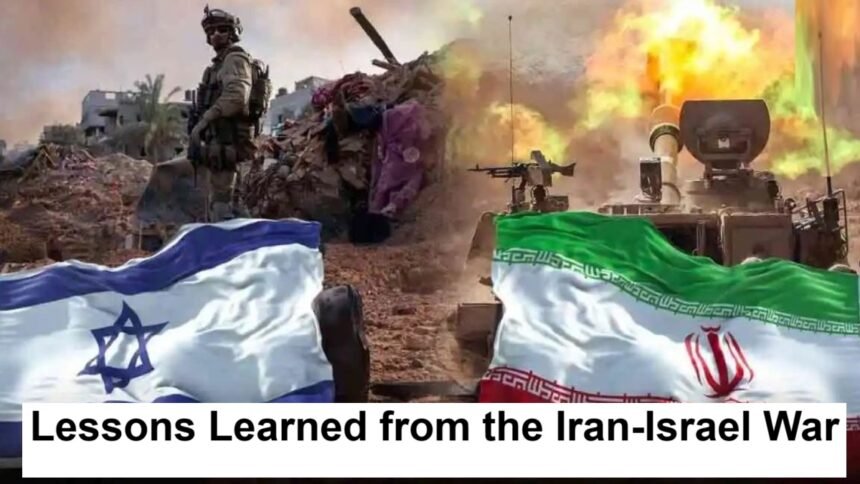Introducing
When the topic of the Iran-Israel war comes up, it’s not just an issue of history or headlines—it’s a source of important life and leadership lessons. These two nations, with their complex backgrounds and volatile interactions, have demonstrated much more than military strategies. If you look beyond the dramatic news flashes, you’ll see thought-provoking takeaways about decision-making, resilience, diplomacy, and navigating uncertainty. Here are some of the most striking lessons I’ve observed from this modern conflict.
The Weight of Escalation—And the Power of Restraint
One of the most recurring patterns witnessed in the Iran-Israel war is the cycle of escalation and de-escalation. Both sides have periodically chosen restraint even when tensions bubble over. This back-and-forth teaches us that in heated circumstances—at work, home, or among friends—choosing not to retaliate immediately can prevent bigger problems. “Pausing” before reacting is a skill that avoids irreversible damage and sometimes opens the door to compromise.
Complexity of Alliances and Unpredictability
Perhaps nothing highlights geopolitical complexity more than the shifting alliances and interests in the Middle East. Each move by Iran or Israel is watched and influenced by a wider web of other nations. In business and life, this reminds us to appreciate how complex relationships influence outcomes. Rarely do decisions or rivalries exist in a vacuum; there are always hidden strings and outside observers. Before jumping to conclusions, it pays to “see the whole board.”
The Human Cost Always Matters Most
No matter how sophisticated the weapons or technology, civilian lives are always most affected. The stories that surface during the Iran-Israel clashes almost always trace back to displaced families, lost livelihoods, and humanitarian struggles. If there’s one lesson for leaders and everyday people alike, it’s to never lose sight of the human impact of our choices. Caring about people, not just outcomes or power, gives our actions lasting value.
Misinformation, Perception, and the Media
Modern conflicts are fought on battlefields and in the world of opinions. Both Iran and Israel have invested heavily in information campaigns and media influence. What does this mean for you? Never take surface narratives at face value! It’s essential to seek multiple viewpoints, challenge easy assumptions, and develop critical thinking. In a world overflowing with information (and misinformation), clarity requires real effort.
Adaptability and Innovation under Pressure
In many ways, the Iran-Israel conflict has been a catalyst for rapid technological change. From drone warfare to cybersecurity, both sides have adapted quickly to new threats. The lesson for the rest of us is simple: when facing pressure—whether from competition, deadlines, or change—you can’t just stick to old tricks. Innovation, learning, and adaptability aren’t luxuries; they’re necessities. If you’re open to changing methods, you’re far more likely to survive and thrive.
Diplomacy Isn’t Just for Politicians
Even in war, backchannel negotiations, mediations through third parties, and private talks never stop. Diplomacy—understood as the art of negotiation and persuasion—is a skill that helps resolve disputes, settle differences, and open possible paths forward. In personal and professional life, mastering “diplomacy” can mean the difference between stalemate and progress.
Endurance and the Long View
Finally, the drawn-out nature of conflict teaches the necessity of patience and the power of endurance. Lasting results, whether peace agreements or positive change, often require sustained effort. It’s tempting to want instant fixes, but real progress often comes through persistence, resilience, and keeping a steady vision.
In summary, while the Iran-Israel war brings tragic consequences, it’s also a mirror reflecting the challenges faced by individuals and organizations everywhere. From the dangers of unchecked escalation to the daily need for adaptability, these are lessons none of us can afford to ignore.












